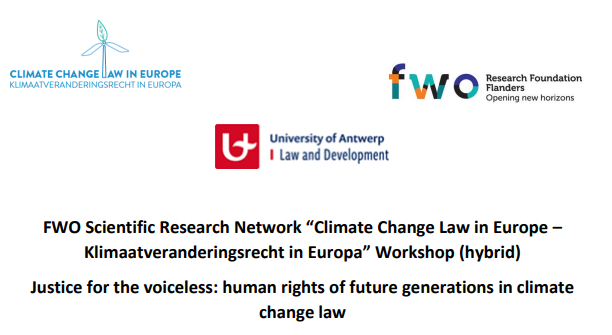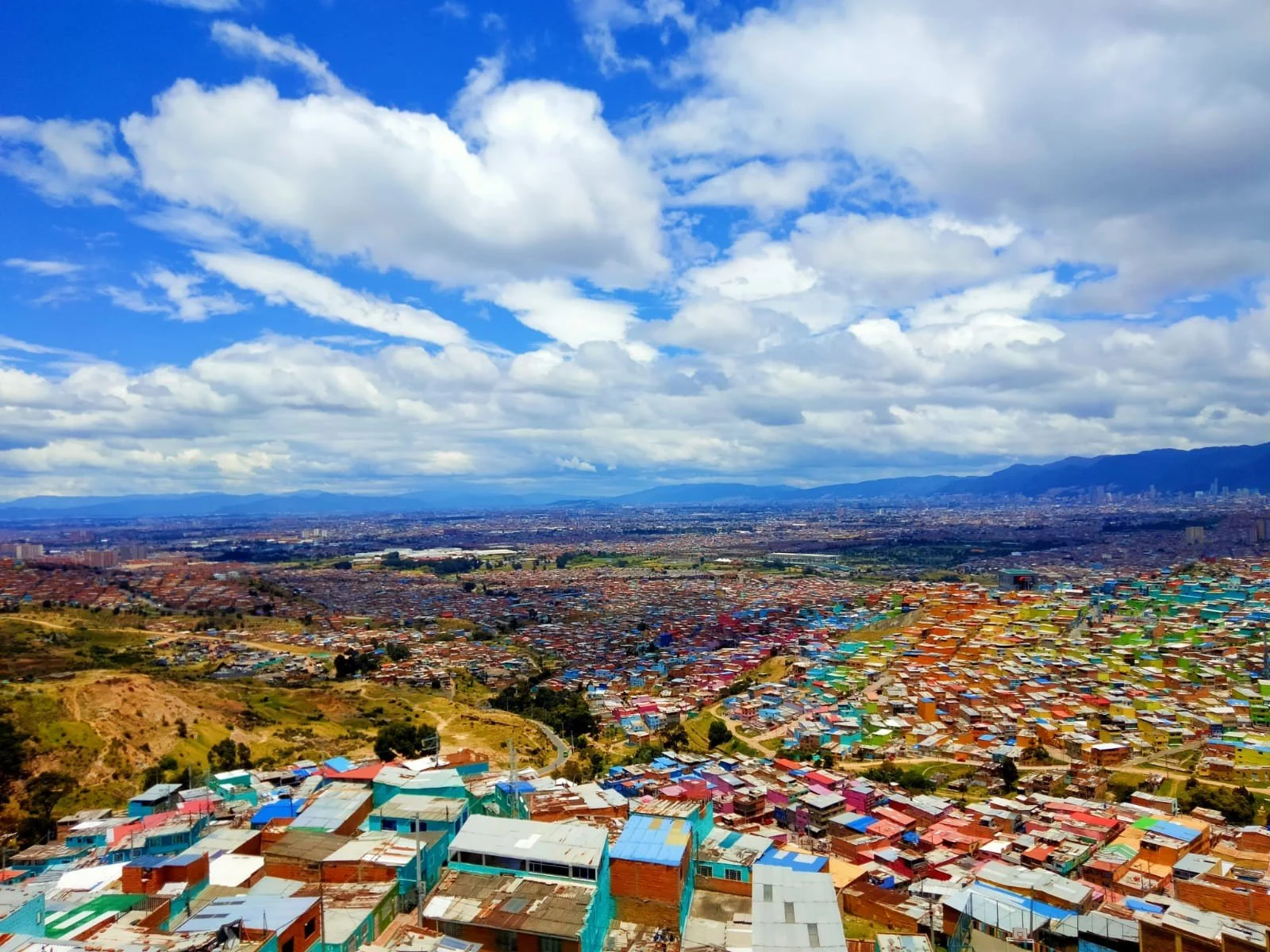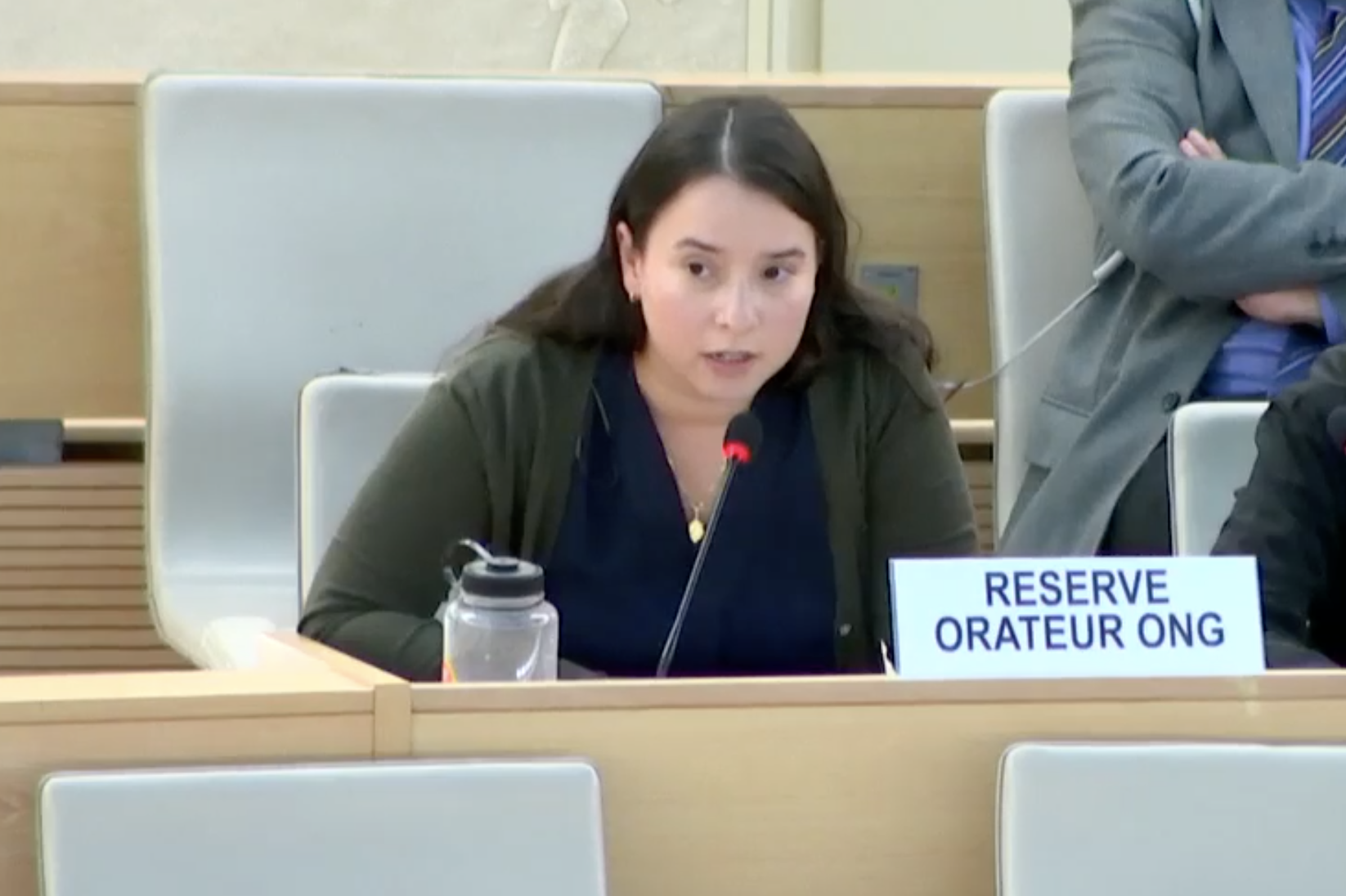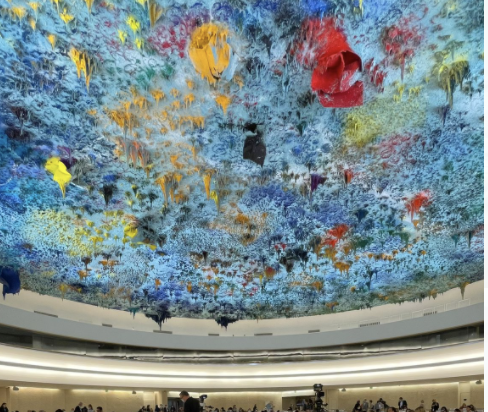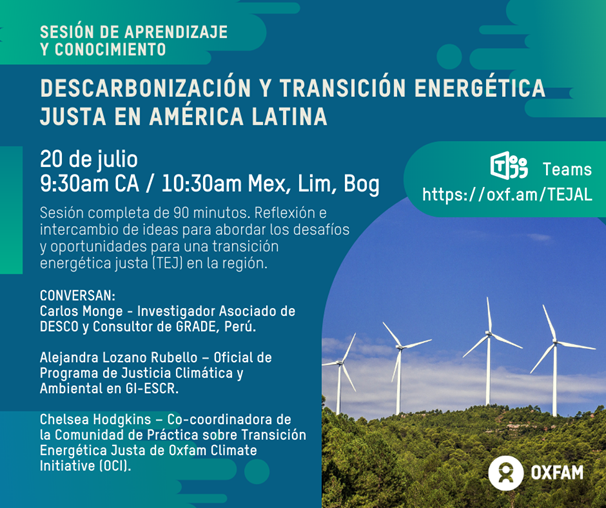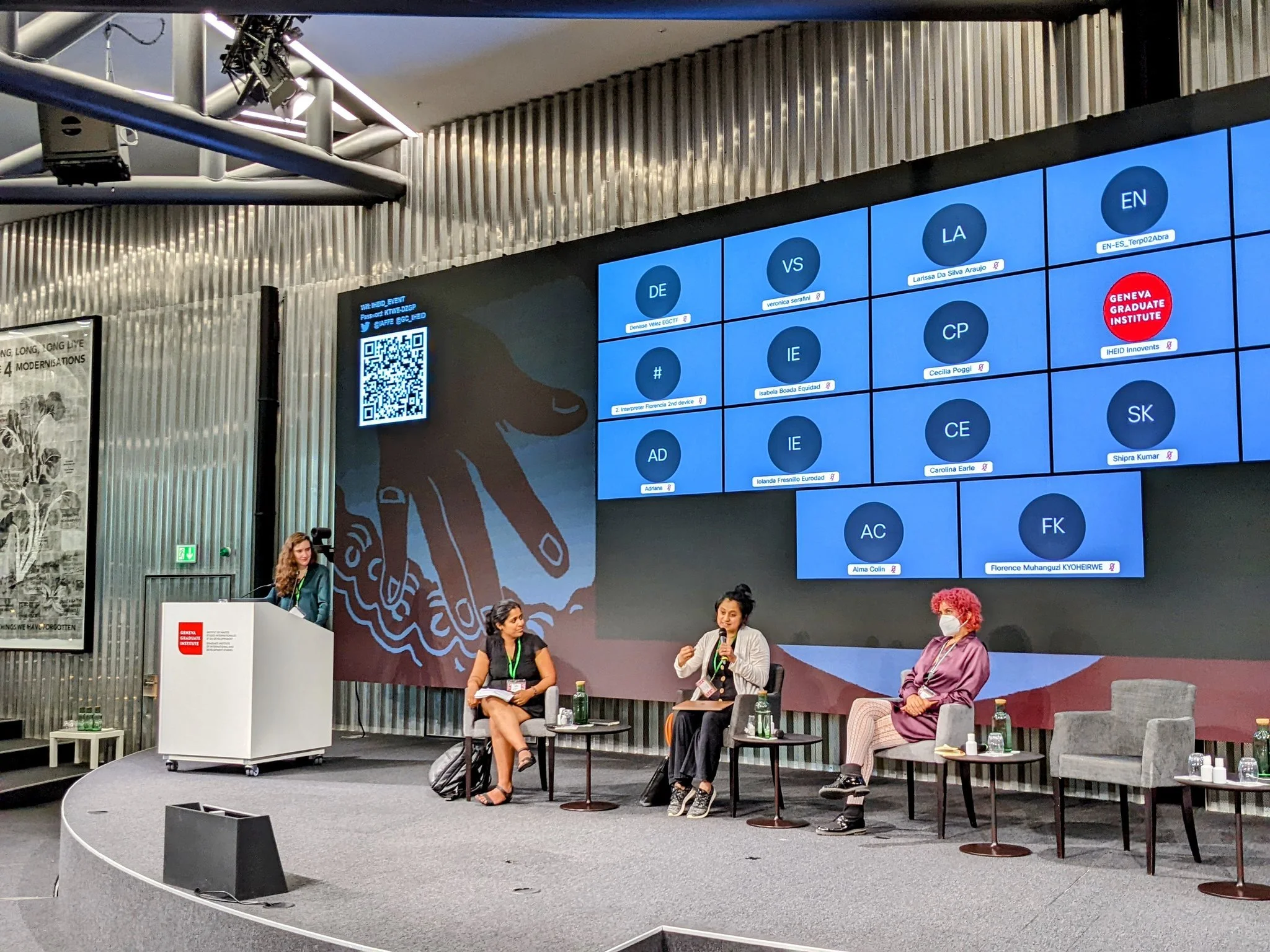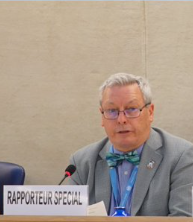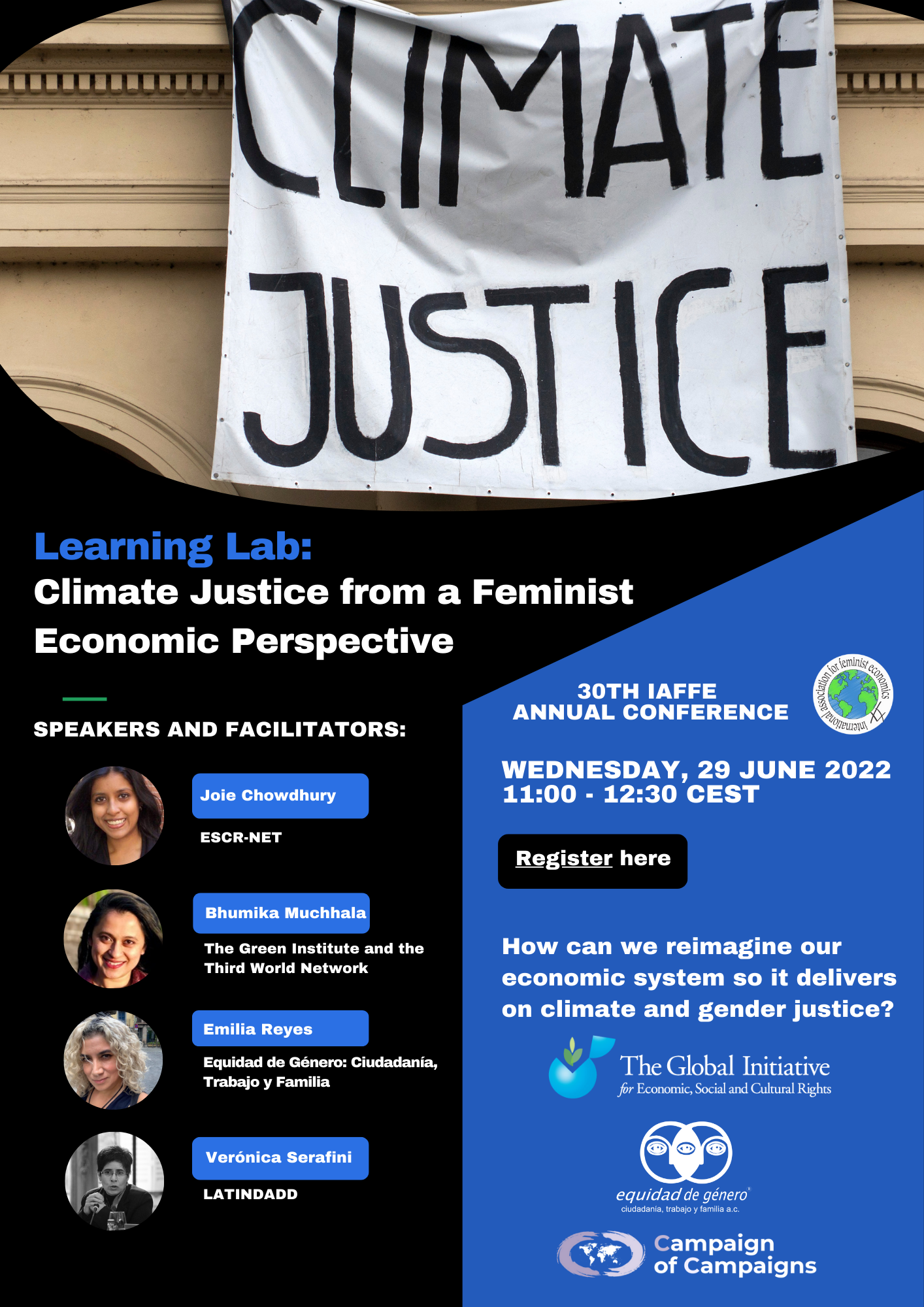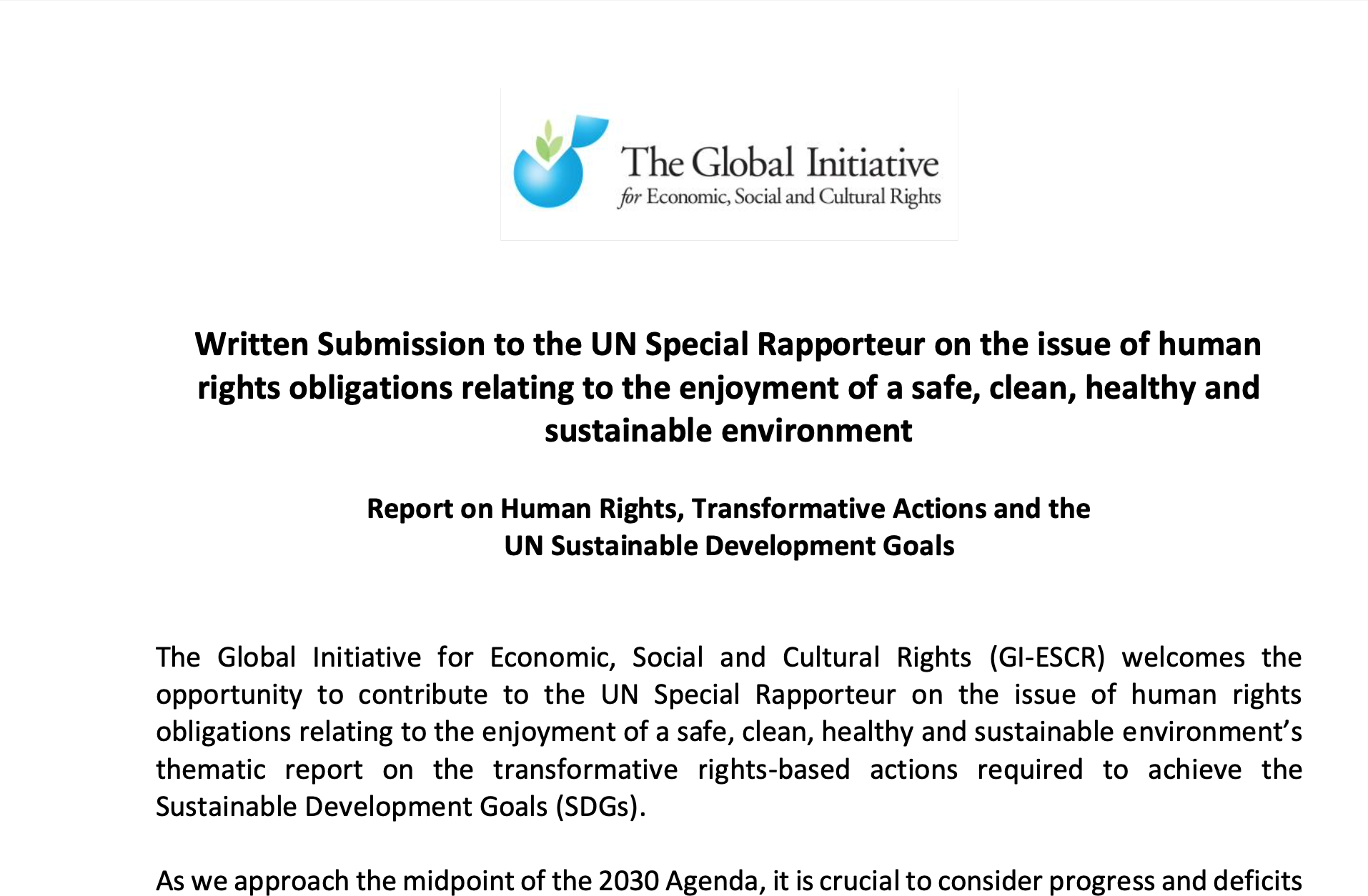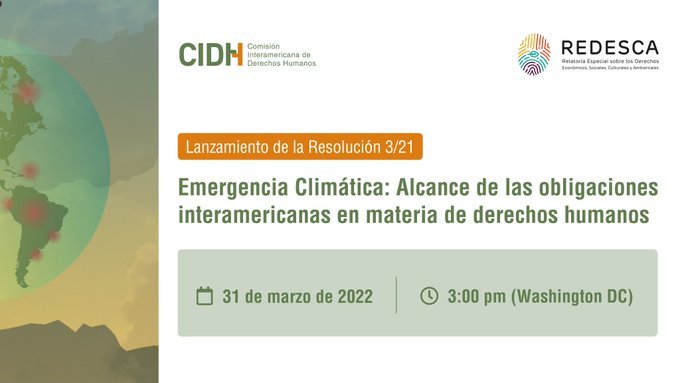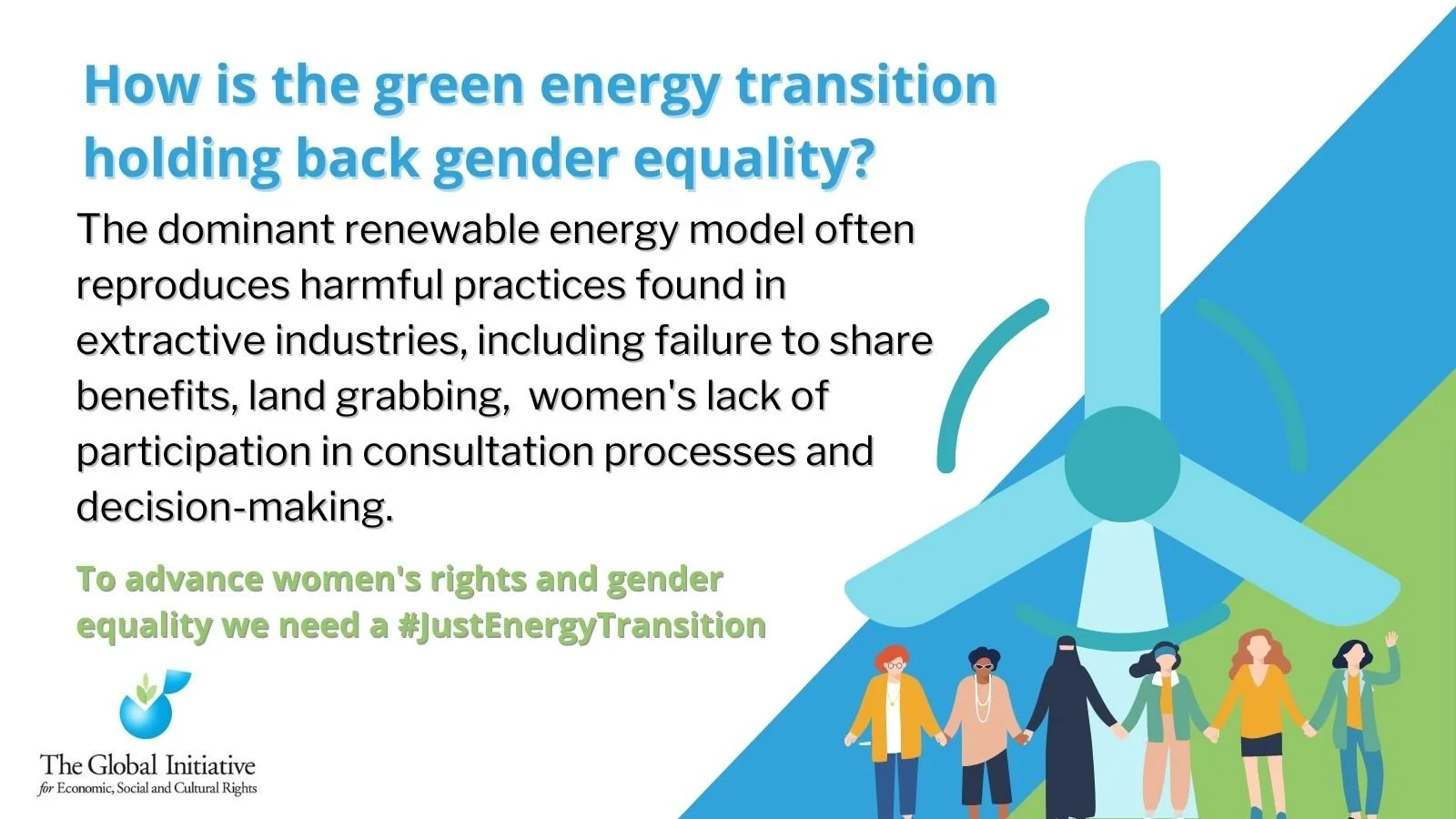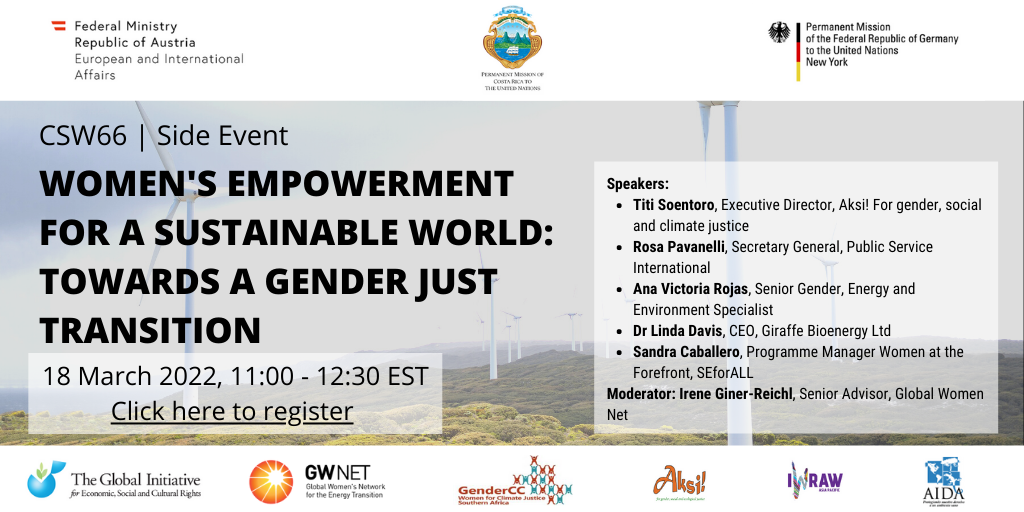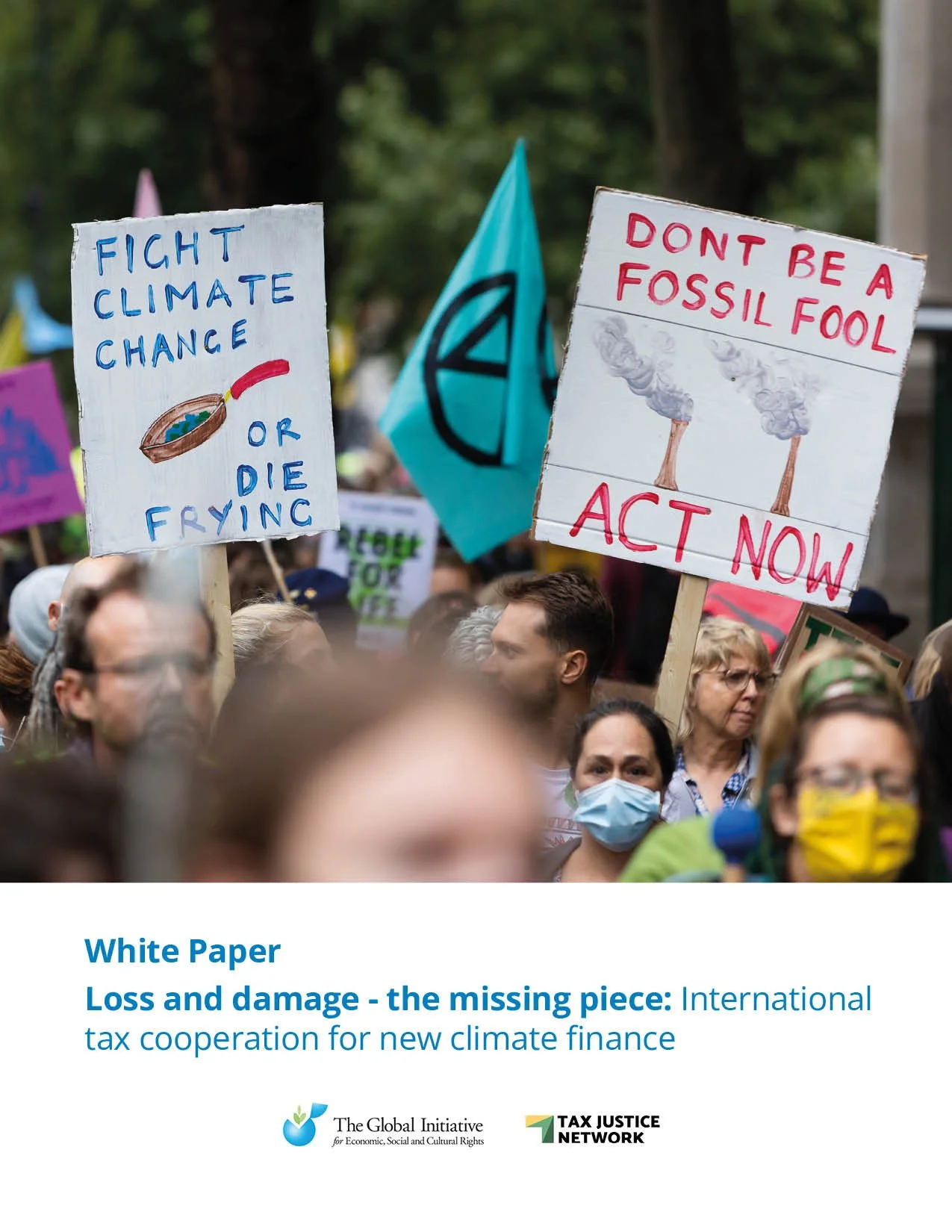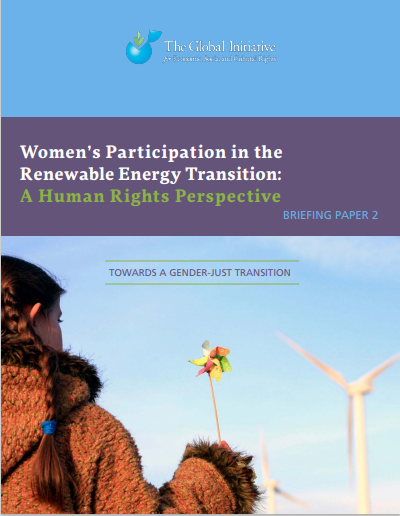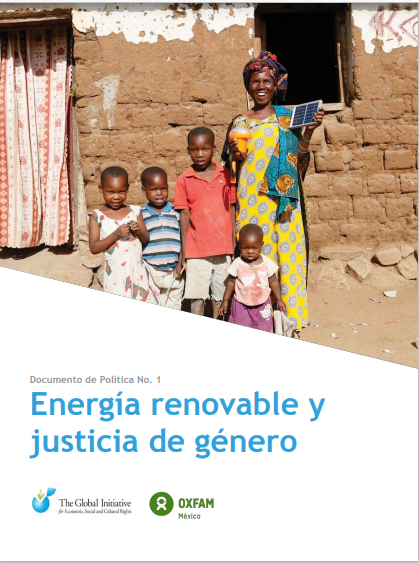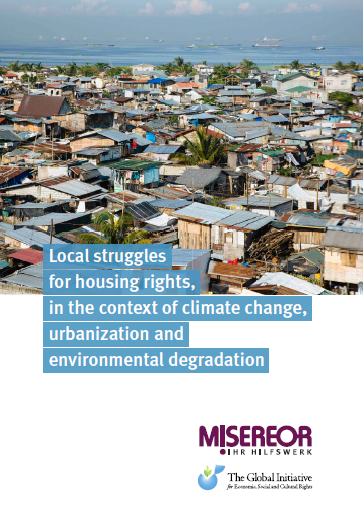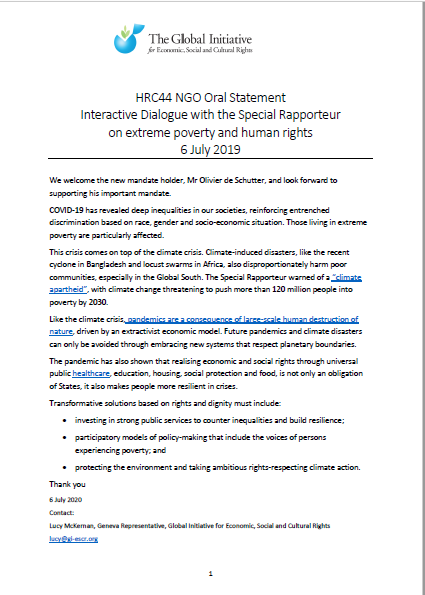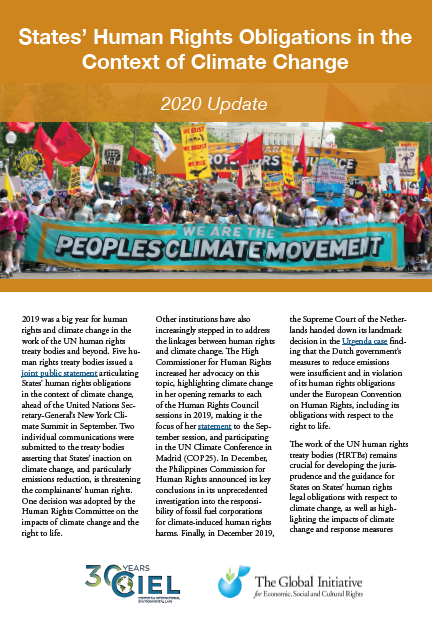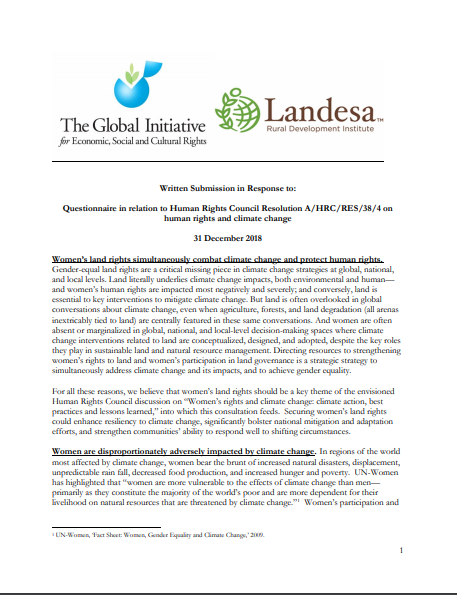
Issue
There is no longer any doubt that climate change is a human rights issue. The adverse impacts of climate change constitute one of the most significant global threats for the enjoyment of human rights – especially the rights protected under the International Covenant on Economic, Social and Cultural Rights (ICESCR).
+ Read more
As the Special Rapporteur on human rights and the environment has underlined: ‘The foreseeable adverse effects of climate change on the enjoyment of human rights give rise to duties of States to take actions to protect against those effects. Human rights obligations apply not only to decisions about how much climate protection to pursue, but also to the mitigation and adaptation measures through which the protection is achieved.’ (A/HRC/25/53).
All of the international human rights mechanisms are now considering the impacts of climate change on human rights and reminding States of their human rights obligations in climate action. In this context, the international human rights mechanisms are important accountability spaces.
Global events, such as the 2008 financial crisis, which damaged affordability of housing, and the global food price crisis which led to extensive land grabbing by States and corporations displacing millions from their homes has also significantly impacted the right to adequate housing. The financialisation of housing and privatisation of social housing, have led to housing being considered a commodity, rather than a right or a social good. This has caused severe unaffordability and homelessness crises.
The global phenomena of urbanisation, climate change and mass migration flows, are also having a significant and complex impact on the right to adequate housing. With this changing global context, the international normative framework on the right to adequate housing, has failed to keep pace. International human rights mechanisms often give comparatively little, or narrowly focused attention to the right to adequate housing.
The contemporary international discussions on sustainable development, climate change and urbanisation, a strong housing rights voice is often missing.
A re-invigoration of this crucial right is urgently needed to restore a human rights based approach to housing, to return housing rights to the centre of human rights discourse, to advance the normative development of this right, and ensure housing rights are taken into consideration in the relevant contemporary international discussions.
Our Approach
GI-ESCR advocates for urgent climate action in order to avoid the serious threats to economic, social and cultural (ESC) rights posed by the climate crisis. Our work highlights the impact of the climate crisis in exacerbating social and economic inequalities and gender injustices.
+ Read More
GI-ESCR built the capacity of Geneva based human rights monitoring bodies, including the Human Rights Council, through briefings, country specific reports pushing for policy-relevant recommendations to States, and publishing a widely cited report on 'States’ Human Rights Obligations in the Context of Climate Change'.
The aim of this work is to:
deepen the understanding and awareness of the very serious impacts on human rights of climate change;
influence States to employ greater ambition in their climate and energy policies and ensure that these policies are based on human rights; and
hold States accountable for their human rights obligations in the context of climate change.
We do this work in partnership and by facilitating access to the international human rights mechanisms for our NGO colleagues working at the national or sub-national.
GI-ESCR Team in GEneva
The Global Initiative for Economic, Social and Cultural Rights presents a joint NGO oral statement on women's rights and climate change, highlighting climate action, best practices and lessons learned at 41st Human Rights Council session in June 2019.
Discover GI-ESCR’s work in the field of renewable energy and gender justice
The global transition to renewable energy is essential and underway, but what will be the implications for gender equality?
This radical transition will involve reimagining new ways of organizing, managing, and powering our societies.
New renewable energy systems must advance a transformative feminist agenda that centers the leadership of women and acknowledges and addresses the historical discrimination that has pushed some groups into a disadvantaged position. The voices of those directly impacted by energy policies must be heard, and those who are formulating rights-based and gender-just energy alternatives must be empowered to shape energy solutions, policies, and legal frameworks.







